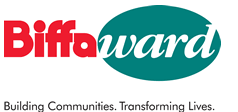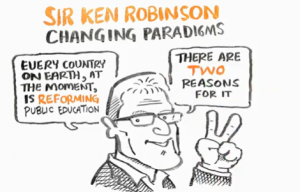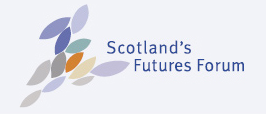

Global Citizenship blog
The Scottish Borders Challenging Homophobia Together Project is part of a national project that aims to reduce homophobia and homophobic bullying in schools bullying. The project is led by LGBT (Lesbian, Gay, Bisexual and Transgender) Youth Scotland, supported by Scottish Borders Council and funded by the Big Lottery Fund. This work follows both national and local research that indicates homophobic bullying has links with low attainment, truancy and early school leaving. Research also suggests that this type of bullying can have a negative impact on young people’s health and well-being, the consequences for some pupils include depression, self harm and suicide attempts.
In Galashiels Academy and Peebles High School LGBT delivered assemblies to 5th and 6th year pupils. Here we asked if anyone would like to get involved in delivering work that challenges homophobia in their school. The response was overwhelmingly positive and a Youth Advisory Group now runs in Gala Academy with 6 pupils and in Peebles High school with 5 pupils. Their ideas have included: posters that challenge homophobia, eliminating the use of the word “gay” as an insult, gathering information on homophobia from other pupils, involvement in developing and delivering lesson plans, and promoting the inclusion of same sex couples at their Christmas dance.
This work is in its infancy, however the interest from a broad range of pupils has shown that young people are interested in getting involved in work that can make a difference in their school, and that homophobia and homophobic bullying can affect many pupils. We also discovered that assemblies, although short, can still have a clear impact. In a recent assembly pupils were asked the question: “Does Homophobia exist in your school”? In response all of the pupils in the assembly hall put their hand up. This sent a strong message about the need for this work and school staff noted their shock and surprise at pupil’s responses.
Written by Karen Wilson,Youth & Community Development Officer LGBT Youth Scotland
Karen can be contacted at [email protected]
Recently, two very dynamic maths teachers, Chris Smith and Aimee Strange, together with a group of very talented pupils, delivered a session for practitioners during the ‘Leadership of Global Citizenship’ open day at Grange Academy. “I want to teach maths in a way that makes sense of the world” said Chris Smith. Below are some links and resources from Chris, Aimee and the pupils, providing an insight into the way in which Maths is taught at Grange, embedding global citizenship throughout the curriculum. They are very happy for others to use these materials….
Our presentation
http://prezi.com/rqzk_r-j1kih/global-citizenship
All of the lessons we created and the tools used to deliver them are available on the website below
www.enterprisingmaths.com/citizenship/
Many of these resources were created using Amnesty’s Citizenship book: http://www.amnesty.org.uk/books_details.asp?BookID=10
You can download the pupil presentations here
Chris also writes a weekly newsletter for the department which includes loads of lesson ideas (for example the citizenship lessons will be included) , maths puzzles, useful websites, etc. Here are some sample newsletters:
Maths at Grange Academy issue151pdf
Maths at Grange Academy issue152pdf
MoreIn June 2009, Mearns Primary School achieved Level 1 of the Rights Respecting School Award. We surveyed staff, parents and pupils to evaluate the impact of developing an understanding of rights and responsibilities within the school and wider community. Embarking on Rights Respecting Schools Award had a hugely positive effect on general behaviour and the ethos within the school. With this in mind we decided to work towards Level 2.
As every class had participated in lessons to develop an understanding of the UNCRC we looked to ways to further embed this within the school. This was done through looking for ways to embed rights and responsibilities throughout the curriculum. When planning, teachers look for specific links to articles in the UNCRC through topics such as WW2, Victorians, Refugees, Election Fever and Local Area. In addition to this, our P7 reading buddies now have a template they use to discuss various rights and responsibilities when reading with younger children.
Every class has a class charter, displays linked to Articles and a copy of the UNCRC display so to up level this the steering group interviewed members of the school community from pupils, catering, office and janitorial staff to teachers and parents. They highlighted the right that they felt applied to them and the responsibility they have in ensuring others enjoy it. These were displayed throughout the school.
We introduced a ‘Right of the Week’ system where each week we focus on a different right and responsibility. Pupils who display responsible and respectful attitude towards that right receive a certificate. This is organised independently by the steering group.
The steering group wanted to raise awareness in the local community so they organised a poster competition throughout the school. Details were put in our RRS Newsletter and the posters were completed as a homework task. This increased awareness and understanding for parents. The winning posters were published and then the steering group visited local community establishments explaining what the UNCRC is and what we had been doing to become a RRS. They then asked for the posters to be displayed and for that place to be a RRS doctors, dentist, library etc.
Our RRS also visited local guides, brownies and BBs to do presentations about RRS there, this was well received and we aim to continue to do this.
Written by Siobhan McColgan, DHT, Mearns Primary. Siobhan can be contacted at [email protected].
MoreAt Mearns Primary the election fever topic looks at election processes, the Scottish parliament and is run as an enterprise topic. Pupils work in teams to run an election campaign and undertook the following:
• Through discussion and activities the children realised the importance of a leader to organisation and decision making capabilities
• Pupils discussed what qualities a leader (a candidate) should have. For this the children used a resource called ‘Ideas Trail’, to sort their ideas and arrive at important qualities. This allowed them to structure their discussion and rate their final choices.
• Pupils had opportunity to think as to whether they had these qualities or indeed whether they could develop these qualities and propose themselves as a candidate.
• Candidates then had to write a manifesto, whilst those not applying had to write a similar script on what they would like to be changed in the school/classroom.
• A mini secret ballot was then initiated and 4 candidates chosen to run for election. The other children in the class were assigned to work for a candidate and they were to choose a logo a party name and a slogan.
• On the day of voting children were given specific roles: Presiding Officer, Polling Agent, Counting Agent and Tellers.
• The winning candidate then made a speech and gave thanks to their supporters and support team. A considerable effort was made to ensure ballot was as realistic as possible by making a ballot box, voting booth, using name cards, high visibility vests etc.
• Pupils are also given an additional activity where they are given the role of Chancellor of the Exchequer. We watch a video of the Budget and the children are given a fictional amount of money and they have to decide how they are going to spend it e.g. Education, Armed Services, Health etc. The class then have a debate about how the money is spent and get to see that people from different perspectives have very different opinions.
EthCo has announced the school winners in this year’s Challenge competition. The Challenge was to use one of the EthCo tasks to promote Interdisciplinary Learning in the spirit of Curriculum for Excellence, and be able to demonstrate this learning in a vibrant and clear manner.
For more information see: http://bit.ly/oMLECy
MoreGlobal Citizenship education happens in many places outside school as well as in the classroom, taking advantage of the richness of natural and built environments. Here are three examples where Scottish young people are being taught in watery locations about aspects of Global Citizenship.
This week’s Times Education Supplement Scotland includes an article about Glasgow primary pupils on a voyage down the Forth and Clyde Canal, titled ‘Climb aboard for global citizenship’. A canalboat carries the children along as they learn about nature along the banks of this man-made route, and discuss the rights and responsibilities of being a local citizen.
On the Clyde, teachers and pupils can join the ‘Classroom on the Clyde’ for trips down the river. The educational experience includes coverage of industrial heritage as well as the wildlife and environmental activity along the course of the river. The cleaning-up of the Clyde itself means that there is increasing leisure activity to discuss too. The extensive developments for leisure and housing on both banks, such as Glasgow’s brand new Riverside Museum which focuses on transport and travel, means that this ever-changing landscape offers great opportunity for learning outdoors.
And over in Edinburgh, the Vine Trust charity is fitting out a canalboat in the docklands to operate as a floating classroom for Global Citizenship. The Barge Education Centre will open this autumn as an educational resource, operating as a venue for learning, exhibitions and teacher development.
More Biffaward is a multi-million pound fund that helps to build communities and transform lives through awarding grants to community and environmental projects across the UK.
Biffaward is a multi-million pound fund that helps to build communities and transform lives through awarding grants to community and environmental projects across the UK.
There are three levels of funding available:
There are no grant deadlines. Applications are accepted at any time. Find out more at: http://www.biffaward.org/
More If you have some free time at the start of the new term then you may want to watch these short, but inspiring videos, about education and change.
If you have some free time at the start of the new term then you may want to watch these short, but inspiring videos, about education and change.
The first is an amazing animation adapted from a talk given at the RSA by Sir Ken Robinson, world-renowned education and creativity expert on changing the education paradigm. See link to You Tube clip (5 million hits): http://www.youtube.com/watch?v=zDZFcDGpL4U
And we loved this one about leadership and change. Are you the lone nut or first follower? Find out how dancing can get your process of change to the tipping point! See the You Tube clip (1 million hits) at http://www.youtube.com/watch?v=fW8amMCVAJQ
And how do you get people to change habits of a lifetime by taking the stairs instead of the escalator? Making it fun might be a good place to start! See You Tube clip (15 million hits) at http://www.youtube.com/watch?v=2lXh2n0aPyw&feature=related
Let us have your comments and other suggestions for inspiring videos!
More Scotland’s Futures Forum has developed three thought-provoking scenarios exploring what sustainable communities might look like, in Scotland, in 2030. Each scenario is accompanied by a short film and podcast.
Scotland’s Futures Forum has developed three thought-provoking scenarios exploring what sustainable communities might look like, in Scotland, in 2030. Each scenario is accompanied by a short film and podcast.
The scenarios are very accessible and throw up interesting and pressing questions for politicians, policy makers and for wider Scotland. These scenarios are not predictions but can be used as a tool to question and assess our understanding of sustainability, of community and how we are preparing for the future.
More at: http://scotlandfuturesforum.org/index.php?id=101
More Historypin is about bringing people together all over the world, from across families, communities and different generations, to see and share their history in a new way. It is a great online tool to use in schools both in the classroom and to run events and projects to get parents, families and the community involved in school life.
Historypin is about bringing people together all over the world, from across families, communities and different generations, to see and share their history in a new way. It is a great online tool to use in schools both in the classroom and to run events and projects to get parents, families and the community involved in school life.
The online tool also offers schools and communities an opportunity to collaborate in building and broadening the record of local history and encouraging generations to come together around a communal history of people and place.
If you still don’t get it then think about the box of old photos, recordings and cine film your gran has and about how these would bring a whole new dimension to Google map streetview!
Find out more at: http://www.historypin.com/
See other online history tools
Historvius - http://www.historvius.com/
What was there - http://www.whatwasthere.com/
Histografica - http://www.histografica.com/
And for the iPhone / Android - http://www.museumoflondon.org.uk/Resources/app/you-are-here-app/index.html
More
Find us on